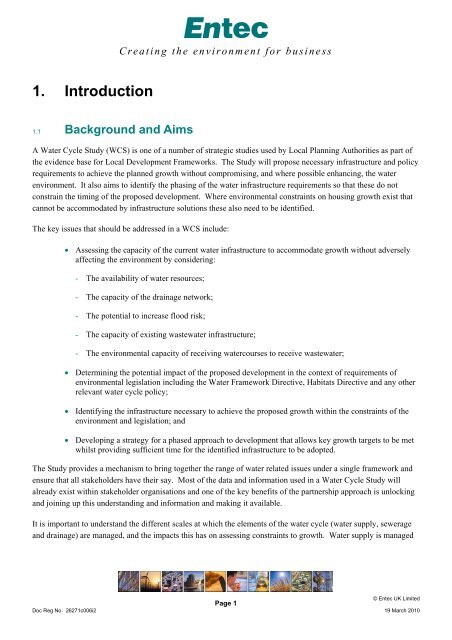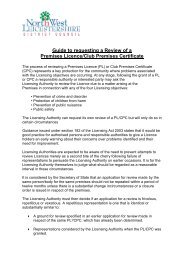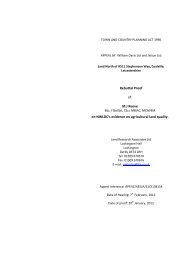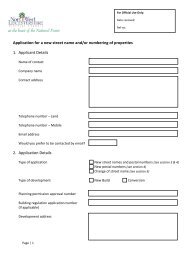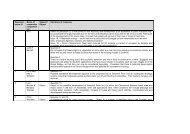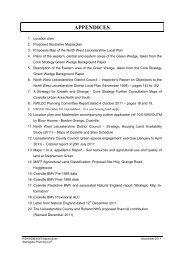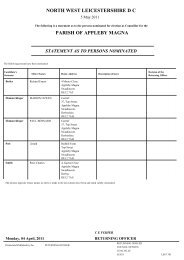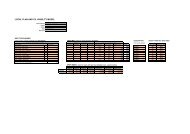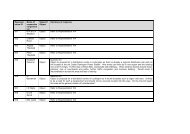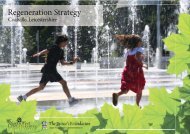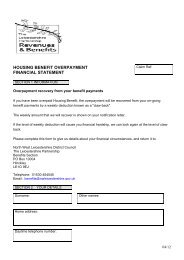Water Cycle Study - March 2010 - North West Leicestershire District ...
Water Cycle Study - March 2010 - North West Leicestershire District ...
Water Cycle Study - March 2010 - North West Leicestershire District ...
You also want an ePaper? Increase the reach of your titles
YUMPU automatically turns print PDFs into web optimized ePapers that Google loves.
Creating the environment for business<br />
1. Introduction<br />
1.1 Background and Aims<br />
A <strong>Water</strong> <strong>Cycle</strong> <strong>Study</strong> (WCS) is one of a number of strategic studies used by Local Planning Authorities as part of<br />
the evidence base for Local Development Frameworks. The <strong>Study</strong> will propose necessary infrastructure and policy<br />
requirements to achieve the planned growth without compromising, and where possible enhancing, the water<br />
environment. It also aims to identify the phasing of the water infrastructure requirements so that these do not<br />
constrain the timing of the proposed development. Where environmental constraints on housing growth exist that<br />
cannot be accommodated by infrastructure solutions these also need to be identified.<br />
The key issues that should be addressed in a WCS include:<br />
• Assessing the capacity of the current water infrastructure to accommodate growth without adversely<br />
affecting the environment by considering:<br />
- The availability of water resources;<br />
- The capacity of the drainage network;<br />
- The potential to increase flood risk;<br />
- The capacity of existing wastewater infrastructure;<br />
- The environmental capacity of receiving watercourses to receive wastewater;<br />
• Determining the potential impact of the proposed development in the context of requirements of<br />
environmental legislation including the <strong>Water</strong> Framework Directive, Habitats Directive and any other<br />
relevant water cycle policy;<br />
• Identifying the infrastructure necessary to achieve the proposed growth within the constraints of the<br />
environment and legislation; and<br />
• Developing a strategy for a phased approach to development that allows key growth targets to be met<br />
whilst providing sufficient time for the identified infrastructure to be adopted.<br />
The <strong>Study</strong> provides a mechanism to bring together the range of water related issues under a single framework and<br />
ensure that all stakeholders have their say. Most of the data and information used in a <strong>Water</strong> <strong>Cycle</strong> <strong>Study</strong> will<br />
already exist within stakeholder organisations and one of the key benefits of the partnership approach is unlocking<br />
and joining up this understanding and information and making it available.<br />
It is important to understand the different scales at which the elements of the water cycle (water supply, sewerage<br />
and drainage) are managed, and the impacts this has on assessing constraints to growth. <strong>Water</strong> supply is managed<br />
Doc Reg No. 26271c006i2<br />
Page 1<br />
© Entec UK Limited<br />
19 <strong>March</strong> <strong>2010</strong>


